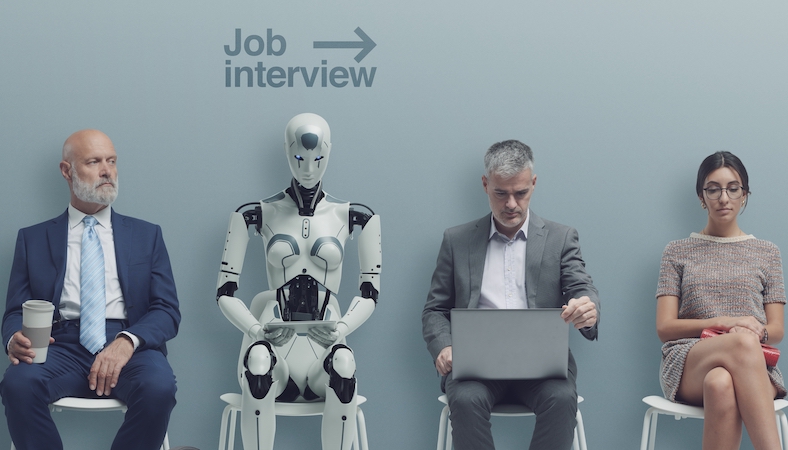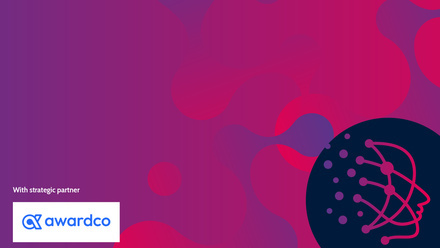Why using artificial intelligence has a positive pay-off for HR, reward and benefits
The use of generative artificial intelligence (AI) in HR, reward and benefits can improve the entire experience for HR and the employee, right from pre-boarding through to off-boarding.
For example, by creating recruitment efficiencies, providing personalised communications, and enhancing professional development opportunities.
However, deploying AI applications require human oversight and transparency, and there will be limitations due to the sensitivity of some of the data involved. Essentially the ‘human’ component of HR can never be replaced.
Opportunities
Since the launch of Open AI’s ChatGPT in November 2022, the HR sector has been inundated with a flood of specialised AI tools that have the potential to reinvigorate the entire recruitment and retention process.
Specific ways in which AI can benefit HR include:
- Identifying talent – this is an expensive component of the recruitment process, one that many companies are forced to outsource to specialist agencies and other third parties. New AI tools include dedicated search engines for recruitment, searching multiple social platforms in parallel and presenting potential candidates in response to recruiter prompts. These tools can also help to streamline outreach, by drafting and sending emails to identified candidates.
- Screening candidates – once talent has been found, it can be extremely time-consuming for recruiters and hiring managers to review resumes and progress candidates to the next stage. AI tools can identify job applications that mention the specific skills a job requires, liberating employers from solely relying on credentials and degrees as proxies for expertise. Once screened, AI tools can organise candidates within a ranking system, allowing recruiters and hiring managers to prioritise the best candidates.
- Scheduling – by communicating with candidates through messaging and synching with hiring manager calendars, AI tools can organise candidate calls and interviews at suitable times, further streamlining the hiring process. They can also begin to gather information prior to the interview, such as salary expectations, or initiate pre-interview tests, assessing job seekers’ qualities through skill and personality assessments, using data-driven behavioural insights.
- More valuable interviews – by automating the screening process, the use of AI tools can enable the first conversation between a candidate and an employer to focus directly on the candidate’s personality, soft skills, and fit with a company’s culture.
- Compliance checks – once an employee has been hired, the onboarding process can be complex and challenging for managers. AI based tools can assist employees by automating compliance checks and flagging any potential violations, reducing the risk of errors, and helping to spot discrepancies.
- Employee onboarding – AI tools can help employees to settle into a new role quickly by providing answers to frequently answered questions and guiding them through necessary paperwork and training. Likewise, adaptive machine learning capabilities can collect data on learners’ preferences and adapt training to better-fit their needs.
- Employee experience. AI has the potential to significantly enhance the employee experience for both HR professionals and employees by enhancing communication and personalising interactions. For the employee, AI can provide improved communication and learning experiences. For example, AI-driven chatbots can provide instant responses to common queries, ensuring timely assistance on matters like leave policies, benefits and company policies. Personalised learning paths can be tailored to individual employees’ needs, enhancing skill development and career growth. AI-driven performance reviews can provide objective insights, reducing bias and ensuring fair assessments. For HR, AI-powered analytics can provide insights into workforce trends, helping HR anticipate needs, improve retention strategies, and foster a more inclusive workplace.
- Promoting diversity - By generating career pathways and matching candidates to jobs that are skills-centric versus education-centric, AI and chatbots can help increase inclusion. This can be through a guide for disadvantaged workers in a company to level up their proficiency and giving them an opportunity to re-skill or upskill. Such platforms drive inclusion by creating better transparency and by giving employees more choices to make real career improvements.
AI tools can also deliver more indirect benefits, such as improving talent retention by removing outdated internal processes and helping employees to feel more engaged. They could enable employees to understand how their role fits in the bigger picture of the company and help explore other pathways for career development or provide advice during a potential transition into a new role.
Risks
Despite the various opportunities that AI affords, the technology is not without its risks. On the contrary, embracing AI blindly is imprudent for several reasons.
A common criticism levied against generative AI is that its tools are liable to produce incorrect results, because their outputs are derived exclusively from the information that is fed into them. In the example of ChatGPT, although it’s a useful tool that can provide users with information in an accessible and easy-to-read format, that information often contains falsities which may go undetected.
Related to this, another problem with such tools is AI bias – that is, the tendency of AI algorithms to reflect human biases. Typically, this occurs because the data on which the algorithm has been trained contains a certain type of data, which is then processed as desirable and correct. In an HR context, this could manifest through AI tools which are less effective at recognising certain types of qualification, or which more negatively view the applications of women or candidates from minority backgrounds.
When considering the use of AI tools, HR professionals also need to assess whether they are working with confidential personal data. To function effectively, many pieces of AI software rely heavily on the collection and storage of large amounts of data. When deploying AI, therefore, special attention should be given to ensure compliance with both the applicable data protection regulations and any internal data security policies that protect against unauthorised access and data breaches.
By using these tools, the hiring process may also become less transparent as the AI may not disclose the rationale behind its decisions. This could have significant consequences in a HR context.
For example, it is reasonable to expect that candidates might ask why they have been rejected for a role. And what if candidates are screened before their applications are viewed by a hiring manager?
It will be crucial to never remove the human factor of HR. The human ability to reflect and critically evaluate can never be fully replaced, so it’s best to use the tools to streamline HR processes as opposed to replacing them entirely.
As Ian Hogath from UK’s AI Foundation Model Taskforce accurately put it: “AI will not replace you but someone using it will. AI is here to help elevate and extend your expertise.”
Supplied by REBA Associate Member, Lockton People Solutions
Lockton provides creative people solutions that make life better, for your business and your people.








